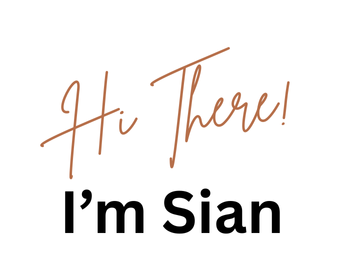There’s a quiet unraveling that happens to many mothers in the early months and years. It doesn’t always announce itself. It creeps in slowly, in the space between back-to-back feeds, missed showers, and never-ending lists. And at some point, you realise you’ve started referring to yourself in third person—”Mama needs to eat”—because that’s the only version of you anyone responds to now.
You used to have edges. Preferences. A centre.
Now, your name is rarely spoken. Your body belongs to someone else. And even when you get a minute alone, you’re too tired to remember what to do with it.
You are not broken.
You are not failing.
You are simply full—of responsibility, of love, of exhaustion. And inside that fullness, a quieter part of you has gone missing.
This isn’t about indulgence.
It’s about survival. And the smallest, realest ways to begin finding your way back to yourself.

1. Start with One Breath That Belongs to You
Not the breath you hold when your baby cries.
Not the shallow one you take when you’re running late.
Not the sigh that slips out when you realise the day has gotten away from you again.
A breath that is yours.
Put your hand on your chest. Let the breath drop into your body—not to fix anything, just to feel yourself arrive.
When you’re constantly responding to others, your body learns to live in tension. You forget what it feels like to relax, to exist without anticipating the next demand.
You don’t need to meditate. You don’t need a mat or silence. You just need one breath that reminds your body: I am allowed to be here, too.

Motherhood is a transformation
You don’t have to go it
alone
Receive curated resources and tender encouragement for your journey—body, baby, and beyond.
2. Ask Yourself, “What Am I Feeling Right Now?”—and Let It Be True
Most of us don’t pause long enough to ask this.
Because we’re afraid of the answer.
Because we’ve been told it’s selfish.
Because someone else’s needs are louder.
But checking in with yourself is not a luxury—it’s a basic form of emotional hygiene. And it only takes a moment.
You don’t have to fix the feeling. Just name it.
“I’m tired.”
“I’m touched out.”
“I’m bored, and that makes me feel guilty.”
“I’m lonely, even though I’m never alone.”
Naming what’s real softens the tension between your outer life and inner truth. And that softening? That’s how self-trust begins to regrow.
3. Touch Something That Grounds You
When you live inside constant giving—feeding, rocking, wiping, holding—you begin to lose the sense that your body belongs to you.
Reclaiming that doesn’t require a grand gesture.
Sometimes, it’s as simple as curling up in a soft blanket and feeling it.
Wrapping your hands around a warm mug and letting the heat sink into your palms.
Putting balm on your lips, slowly.
Stepping into the sun for five minutes and noticing the light on your skin.
Your senses are your tether. They bring you back from the mental and emotional spirals of “too much.” When you’re overwhelmed, overstimulated, or running on empty, grounding in your body helps you stay present—without collapsing under the weight of everything else.
4. Choose One Tiny Thing That’s Yours
You don’t need a full morning routine.
You need one thing that reminds you of who you are outside the role you’re in.
A song you loved before motherhood.
A phrase that feels like your voice.
A short passage from a book that feeds your soul.
One corner of a shelf that you arrange just the way you like it.
This is not about productivity.
This is about identity.
If no part of your day belongs to you, it becomes harder and harder to remember what you’re capable of. You begin to disappear into the giving.
Choosing one thing that’s yours—every day, even briefly—keeps a light on inside. It whispers: I still exist, and I still matter.
5. Let One Need Be Met—Without Earning It
Maybe it’s water. Or sitting down while you eat. Or a ten-minute scroll in silence without multitasking.
Whatever it is, don’t barter for it. Don’t wait until everything’s done. Don’t talk yourself out of deserving it.
Motherhood trains us to put ourselves last. And over time, that begins to feel normal—even noble. But meeting your own needs without guilt is one of the most subversive things you can do in a culture that glorifies maternal self-abandonment.
This doesn’t mean ignoring your children.
It means not ignoring yourself.
The more you learn to care for your needs in small, honest ways, the easier it becomes to hold space for theirs without crumbling.
Returning Doesn’t Require Reinvention
You don’t have to rebrand your life or become some empowered new version of yourself overnight. Sometimes, “self-care” is too big of an ask. Sometimes, healing is too loud of a word.
But self-rescue?
That begins with the smallest motion toward remembering who you are.
A pause. A breath. A truth spoken quietly.
You are not gone. You are not lost. You are not too far to reach.
She’s still in there.
And she’s waiting for you to come home.







